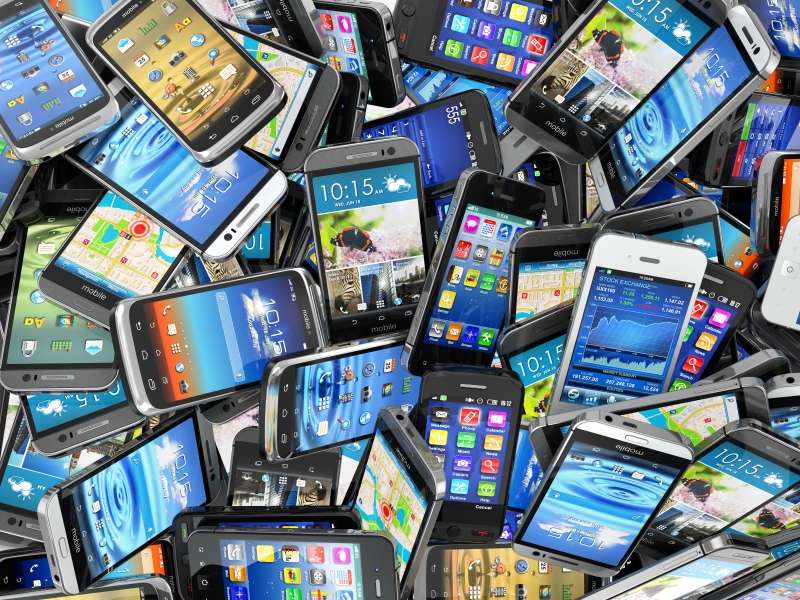




Copyright Geekosophical. All Rights reserved
Welcome to Geekosophical!
Why does an iPhone cost so much?

I was born in a relatively poor family. I mean, we had food and a few toys, but we didn't have a VCR or an exotic car. I had to work to buy my own phone.
It's true that sometimes I wonder what would've happened if I would have been born in a rich family. I guess that my life would have been boring...
I am pretty sure that rich kids don't ask themselves why is an iPhone so expensive. Their moms and dads are probably eager to purchase them the latest and greatest model as soon as it's released.
So, this question is for the rest of us: why do we have to pay so much money to purchase a new iPhone? There are a few official explanations, of course.
Apple uses premium components in its phones - that's a true fact! But several analysts have calculated the cost of each component, and the total manufacturing price is around the $200 mark. And yet, iPhones sell for $600 or more!
I understand that the company must recoup its research costs as well, but let's be honest for a moment, and admit that most of the latest iPhone iterations have simply incorporated their competitors' best features.
Some Apple fanboys (sorry if you are one of them) will tell you that when you purchase an iPhone, you also purchase free access to FaceTime, iCloud, and so on - for life!
This is true, but that's exactly what other big manufacturers such as Google, Samsung, LG, and so on are doing with their smartphones, which provide free access to similar services and cost half of the money!
So, iPhones are expensive because Apple uses high quality components and has a healthy profit margin. But there is more! Several phone carriers want to get a tiny slice of Apple's profit pie as well. And this isn't a game that can be played by every carrier, of course, because Apple's products come at steep prices.
Still, some cell phone companies choose to buy iPhones from Apple anyway, and then use them to make their customers purchase expensive monthly plans.
The idea is that some people may not afford to pay $800 for an iPhone, for example, but they may be able to pay a $50 monthly bill for two years to get one. Often times, customers will keep the plan as it is at the end of the contract; they'll get larger data packages, etc, but this will bring the phone carriers a lot of money anyway.
In conclusion, Apple prefers to sell fewer phones with a higher profit margin, while most of the other manufacturers prefer to use the high-volume business model, selling lots of phones, but getting less profit for each smartphone that's being sold.
It's true that sometimes I wonder what would've happened if I would have been born in a rich family. I guess that my life would have been boring...
I am pretty sure that rich kids don't ask themselves why is an iPhone so expensive. Their moms and dads are probably eager to purchase them the latest and greatest model as soon as it's released.
So, this question is for the rest of us: why do we have to pay so much money to purchase a new iPhone? There are a few official explanations, of course.
Apple uses premium components in its phones - that's a true fact! But several analysts have calculated the cost of each component, and the total manufacturing price is around the $200 mark. And yet, iPhones sell for $600 or more!
I understand that the company must recoup its research costs as well, but let's be honest for a moment, and admit that most of the latest iPhone iterations have simply incorporated their competitors' best features.
Some Apple fanboys (sorry if you are one of them) will tell you that when you purchase an iPhone, you also purchase free access to FaceTime, iCloud, and so on - for life!
This is true, but that's exactly what other big manufacturers such as Google, Samsung, LG, and so on are doing with their smartphones, which provide free access to similar services and cost half of the money!
So, iPhones are expensive because Apple uses high quality components and has a healthy profit margin. But there is more! Several phone carriers want to get a tiny slice of Apple's profit pie as well. And this isn't a game that can be played by every carrier, of course, because Apple's products come at steep prices.
Still, some cell phone companies choose to buy iPhones from Apple anyway, and then use them to make their customers purchase expensive monthly plans.
The idea is that some people may not afford to pay $800 for an iPhone, for example, but they may be able to pay a $50 monthly bill for two years to get one. Often times, customers will keep the plan as it is at the end of the contract; they'll get larger data packages, etc, but this will bring the phone carriers a lot of money anyway.
In conclusion, Apple prefers to sell fewer phones with a higher profit margin, while most of the other manufacturers prefer to use the high-volume business model, selling lots of phones, but getting less profit for each smartphone that's being sold.

But how is it possible for Apple to charge a lot of money for its phones, and get away with it? The answer is simple: it does that because it can! People love iPhones, and there are many who will advertise the product for free.
I know I've mentioned Apple fanboys above, and I may have hurt your feelings. But the reality is that I've purchased and own two different iPhones myself, and they're really good!
This means that I understand the value that they are offering, but I simply can't agree with their price.
Think about it for a second: as you move from 16 GB to 64 GB and 128 GB of storage space, you are paying $100 for each upgrade. It's no wonder that people have learned to upgrade their iPhones from 16 GB to 128 GB for only $60!
The reality is that Apple has built a premium brand, consumers have accepted it, and are willing to pay more for what they consider to be (and actually is) a top-quality phone.
But now there's competition from Samsung and Google, who have launched similar top-quality smartphones on the market. Let the battle begin!
I know I've mentioned Apple fanboys above, and I may have hurt your feelings. But the reality is that I've purchased and own two different iPhones myself, and they're really good!
This means that I understand the value that they are offering, but I simply can't agree with their price.
Think about it for a second: as you move from 16 GB to 64 GB and 128 GB of storage space, you are paying $100 for each upgrade. It's no wonder that people have learned to upgrade their iPhones from 16 GB to 128 GB for only $60!
The reality is that Apple has built a premium brand, consumers have accepted it, and are willing to pay more for what they consider to be (and actually is) a top-quality phone.
But now there's competition from Samsung and Google, who have launched similar top-quality smartphones on the market. Let the battle begin!

